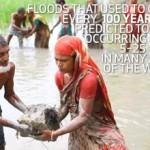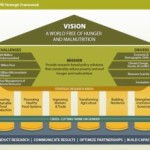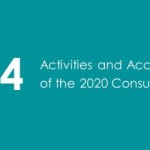Resilience is much more than the latest buzzword in development. It has real and practical meaning and application in our work, and will play a key role in bridging the divide between short-term relief and long-term development goals.
In his closing remarks IFPRI Director General Shenggen Fan shared lessons learned from the conference and outlined a way forward for building resilience. “Resilience,” he said, “is about capacity, ability, and capability (at the) global level, national, level, community level, and –probably most importantly- individual people and their ability to predict, prevent, cope with, recover, and even prosper after crises, (and) after shocks.”
When it comes to understanding and applying resilience building strategies at the individual and community levels, Fan reveals that the research community as a whole lags behind many nongovernmental organizations (NGOs) and other development practitioners on the ground who witness firsthand what works and what does not. Moving forward, researchers, policymakers, development practitioners, the private sector, and communities and individuals they serve must work together to scale-up successes in resilience building efforts as well as experiment with new ways and approaches for enhancing capacities for emerging from shocks without long-term adverse consequences.
Meanwhile, figuring out how to effectively measure resilience remains the subject of much debate. During the conference, many in attendance issued repeated calls for more and better data on resilience related indicators as well as more frequent data and gender-disaggregated data, to name a few examples. Toward this end, Fan recommends employing modern tools and approaches such as risk assessment and environmental mapping as well as information and communications technologies (ICTs) to supplement more traditional household survey data.
Above all, resilience is about systems- from looking at a global food system and how it can feed a growing population sustainably to health and nutrition outcomes as well as environmental factors. By integrating resilience thinking into all aspects of our work, we can focus efforts on building a stronger, more resilient global agricultural system, and optimize limited resources by allocating them to where they are needed most in the system.
Fan concluded by issuing a strong call for resilience to be included in research, programming, and policy investments moving forward, including important milestones such as the Post-2015 development agenda. “Resilience covers all these cross-cutting areas: sustainable development, jobs, (and) of course, food and nutrition security… Without tackling the resilience issue, we will not be able achieve ending hunger (and) ending malnutrition by 2025. Resilience is a must.”







An interesting conference to hear varying views from different actors! The "resilience" language will undoubtedly dominate the decades development Language. This morning I heard a heart breaking news (http://www.bbc.com/news/world-asia-china-27404771) about many China's families who could not be "resilient" in the middle of highly "resilient" Chinese economy. I understand unless the cake gets bigger and bigger there will be nothing to share that that everybody eat "resiliently." What if even if the gets bigger and bigger, those with "long hand" gets more and more of the cake (think this is what the bbc report shows of what has happened to Chinese family). I am am among the fun of the Chinese growth path but at the same time I feel the county and its cake should be "common" to all in that country and so should the whole planet to human kind. For me the language of resilience should bring in analogy of soccer. The decision of the referee and those to whom the referee is accountable need to make the game fair. Lets stretch for more but crab the greedy who want take the whole cake.